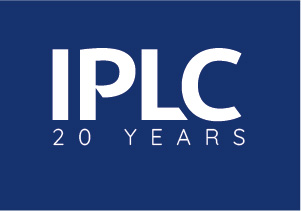The Ultimate Guide to Prepare your Buyer meeting
By Remy Medina and Richard Harrow
As a private label manufacturer, it’s important to tailor your preparation for a buyer meeting based on their specific retail needs. Understanding the specific issues of your counterpart will ensure you prepare a robust presentation. Here are some key steps to help you to prepare yourself for this meeting: As the saying goes “If you fail to plan, you are planning to fail”
Research the retailer environment
Before the meeting, do some research on the retailer’s competitive environment. This allows you to put yourself in the shoes of the buyer(s) helping you to highlight your product and your company as viable supplier. Here are some of the key steps required to make a robust preparation:
- Research the market: Before the meeting, conduct market research to gain a better understanding of the customer’s positioning and target audience. Look for trends and patterns that may indicate areas where your private label products could fill a gap, address an unmet need, or solve a problem.
- Review the customer’s current offerings: Take a close look at the customer’s current product offerings to identify any gaps or opportunities for your products. For example, if the customer has a line of organic snacks but no gluten-free options, this may be an opportunity for you to offer a private label gluten-free snack.
- Understand their current supplier base: If you can find out their current supplier, trying to understand their strengths and weaknesses and how they compare against your business will help you shape your proposal.
- Does the retailer look for third party accreditation: Some retailers require suppliers to hold third party accreditation for food safety such as BRC or IFS. They may also look for companies to be aligned to antislavery and fair business practice through organisations like Sedex. Many retailers detail these requirements on their websites.
- How does the retailer’s distribution operate: Do they operate centralised distribution, minimum / maximum pallet heights, special types of pallets, do they use dedicated haulage companies. All of this can have a major impact on pricing.
- Consider pricing and value: Pricing is an important factor for retailers, so be mindful of how your products compare to the customer’s current offerings in terms of value for money. Look for ways to differentiate your products and offer unique value to the customer.
- Look for areas of innovation: Innovation is a key driver of growth in many categories, so consider whether your products can offer something new or different to the customer’s current range. For example, you may be able to offer a new flavour or format that the customer does not currently offer.
- Seek confirmation prior to the meeting: If possible, check that your proposed agenda is aligned with the buyer. Do not be afraid to ask for feedback on your ideas and proposals. This can help you refine your offer and better understand their needs and priorities.
Understand local regulations
The FMCG industry is highly regulated, so it is important to understand any relevant regulations or standards that may impact your products. Especially if you intend to export into a new country. Be prepared to discuss how your product meets these requirements and potentially seek support from national export agencies who could provide extensive information (quality standards, tax legislation, import duties, etc…)
Highlight food safety measures and supply chain excellence
Food safety is a top priority for retailers, so be prepared to discuss the measures you take to ensure the safety and quality of your products. This may include information about your manufacturing processes, quality control procedures, and certifications. Furthermore, guaranteeing a steady supply is becoming a crucial point for retailers who do not want to end up with empty shelves. Be sure to explain your procedure to secure the supply of your main raw materials.
Bring product samples and specifications
even if this seems a logical, many suppliers do not bring their own samples to meetings. It is always helpful to bring physical samples of your products to the meeting, as well as detailed specifications such as ingredient lists, nutrition information, allergen information, and packaging details. The ideal sample is one that can be tasted/tested and presented in a mock-up design version. This helps to bring the product to life for the buyer. If your product requires preparation or cooking make sure they have the facilities needed, this may require booking a kitchen slot and even taking someone to prepare the product for you.
Be prepared to discuss packaging and labelling
Packaging and labelling are important considerations, so be prepared to discuss how your products can be customised to meet the retailer’s branding (online specific design, logo size and colours, etc…) and packaging requirements (eco conception, plastic reduction, etc…)
Leverage on environmental attributes
Many retailers openly highlight their focus on sustainability in their annual reports or on their websites. Checking these to ensure your product meets or exceeds their standards is vital. Emphasising a lower environmental impact of your product is a great way to differentiate yourself and appeal to retailers who for the vast majority of them, prioritise sustainability. This will help you to:
- Quantify the environmental impact: To effectively communicate the environmental benefits of your product, it is important to quantify its impact in a meaningful way. For example, you might calculate the amount of carbon emissions saved by using sustainable materials or the amount of waste diverted from landfills through recycling initiatives. Understanding what the retailer currently focuses on will ensure you tailor your message correctly.
- Highlight sustainable materials: If your product uses sustainable materials or production methods, be sure to highlight these in your marketing materials and product packaging. This can help customers understand the environmental benefits of your product at a glance.
- Leverage certifications: If your product has been certified by a reputable third-party organisation for its sustainability, be sure to highlight this in your marketing materials.
- Highlight the key takeaways of any potential CRS report you might already have in your organisation. Having a clear strategy allows retailers to evaluate potential long-term relationship.
Follow up
After the meeting, follow up with the buyer to thank them for their time. Also reiterate the benefits of your products and confirm any agreed action points. As part of this try to supply information that demonstrates your leadership in your own category. Buyers will always trust and value suppliers with an up-to-date view on their market developments (innovation, competition, legislation) This can help keep your company and products top of mind, increasing the chances of a successful partnership.
Determine the best time of day to schedule a meeting
Depending on the buyer’s role and industry, there may be certain times of day that are particularly busy or stressful. For example, if the buyer is responsible for managing a grocery store, they may be busiest during peak shopping hours. Avoid scheduling meetings during these busy times to minimise disruptions. Depending on the complexity of your product offering or the scope of the meeting, the buyer may need time to review materials or prepare questions in advance. Be sure to schedule the meeting with enough lead time to allow for adequate preparation.
If you need support to improve your organisation’s skills ‘to prepare for your buyer meetings’, contact us to find more about our dedicated Private Label approach at info@iplc-europe.com
This is 6th newsletter in a series of 12 that we will publish in the coming months. In the next newsletter we will send out in March we will discuss ‘Is your Private Label strategy still fit for purpose?’
The topics of the previous newsletters were:
- How to become a Private label supplier of choice
- Being the best Private Label Operator
- The Art of Negotiation for Private Label Contracts
- Supercharge your business for your next trade show
- It’s not just Price that will Win you more Business
All newsletters can be found on the IPLC website To read more


